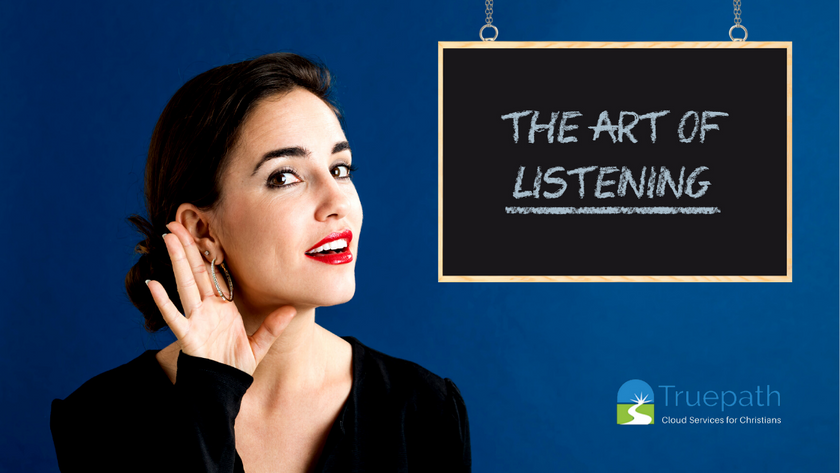Hearing with New Ears
by Stephen Trout
Have you ever considered that, like your eyes and mouth (see Lk. 6:45), your ears have a wireless connection to your heart?
Sound strange? It’s true.
In fact, your “heart” – which scripture describes as the center of your being, comprising your thoughts, will, and emotions (see Mt.9:4, Acts 11:23, Jn. 16:22) – directly influences how well you’ll listen.
We’ll dive into that and its ministry implications in a moment; first we must acknowledge an obvious fact: we live in a world with a lot of sounds to hear. (Take a moment to notice the sounds around you right now).
From instant music and video streaming to social media platforms and 24-hour cable news, the options are endless. We even have headphones to feed them directly into our ears, and noise-cancel everything else.
With so much to hear, you might assume we’ve got this listening thing down.
Yet as Jackie Knapp writes:
“It is amazingly hard to really listen to people. It is increasingly harder as we’re more plugged into mobile devices. We must put them down and focus on the human in front of us. The discipline of listening requires patience and learning to ask questions, so that people feel free to be honest without feeling condemned.”
For some, breaking free of their virtual “stream of consciousness” and steady consuming of media to listen closely to another person – with undivided attention – can feel like stopping an addiction. And it may be exactly that.
Or, perhaps we can find ourselves distracted by what we’d like to say next, our latest hobby, or our plans for the weekend.
Yet tuning into someone else’s story – carefully, with receptive ears, eyes, and heart – is a necessity for wholistic “data gathering” about another person.
So how do we become better listeners?
As with all true movements of love, “heart-listening” is always more than just “going through the motions”, pretending to be attentive while your mind is elsewhere.
Real heartfelt or heart-engaged listening happens with a heart first connected to (or reenergized by) the Gospel.
Three points (call them “trees”) can help us:
1. First, identify the idol that is blocking your listening. Picture a thornbush.
A helpful tip here is to look for the “sin underneath the sin.” In other words, not just the action (thorn), but the heart root underneath it.
Since we know the heart is always worshipping (Rom. 1), we can ask about the object. What “must-have” has captured the heart and is blocking love?
For example: craving entertainment as a way of escape can have us looking past a person at a television. Instead of saying we were just “distracted by a show,” we can ask why that need was so important. What did we want at that moment? To avoid conflict? Be soothed? These are pseudo-idols, looking for peace in things rather than God himself.
Other idols can include workaholism (because success trumps people); pride (we’d rather not be challenged); etc.
Seeing the “sin beneath the sin” helps us name the root problem which is producing thorns.
2. Turn to the 2nd tree – the cross. See Jesus there, giving himself for you.
When we turn to the cross to confess our idols, we see Jesus enduring the silence of not hearing his beloved Father’s voice: “My God, my God, why have you forsaken me?” (Matt. 27:45)
Why did he choose the silence of God? So that you and I might be eternally heard, forgiven, and loved.
3. See the 3rd tree – a fruit tree producing specific fruit of the Spirit (love, joy, peace, patience, gentleness, kindness, self-control)
As we repent, a fresh application of forgiveness and acceptance (not that it was ever absent, but we receive its promise) brings gratitude.
This is how fruit is produced by the Spirit. (Note how different this is from “Just do it,” which bypasses the diagnosis and cross-transaction brought by the “3 trees.”
A new humility to love – and listen well – is formed in a changed heart – an indispensable requirement for ministering to another person.
So there it is: your ears are always connected to your heart!
May God give us the grace to see those connections and repent of our idols, so that we might become better listeners and lovers of others!
*Note: I owe the “3 trees” analogy and diagnostic tool to my former teacher, David Powlison of CCEF, who went home to see his Lord in 2019. He was a gift to both the church and the counseling world, and one for whom I and many others will be eternally grateful.
